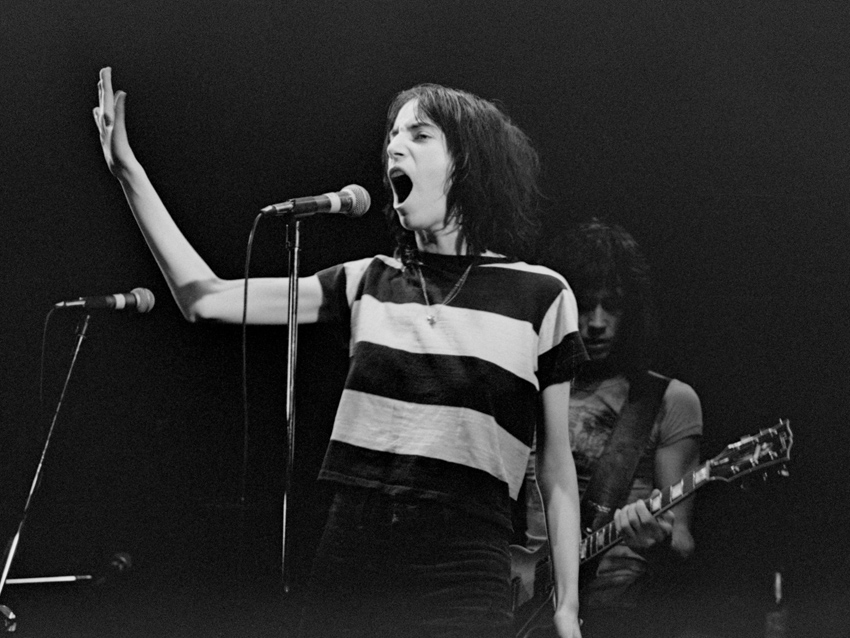24 of the best cover versions of all time
The songs that sounded better second time around
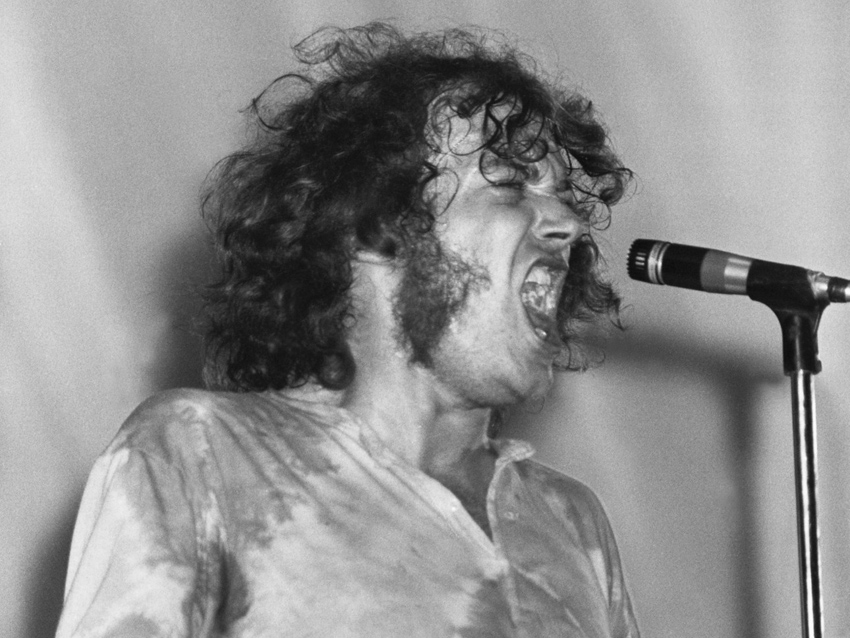
Re-recordings that sound better than the originals
While certain songs sound like classics as soon as they're recorded, others don't find their natural homes until they've been tried on a few times by different artists. Just to confuse things further, there are also cases where the original recording that you initially thought was untouchable ends up being surpassed later on.
Of course, there have also been some truly shocking cover versions down the years, but let's put them out of our minds for now (or, preferably, forever) and celebrate some of the very best.
Have a look at the MusicRadar team's not-always-predictable choices - which are in no particular order, by the way - and then tell us why you violently disagree with them and point us in the direction of some better covers in the comments below...
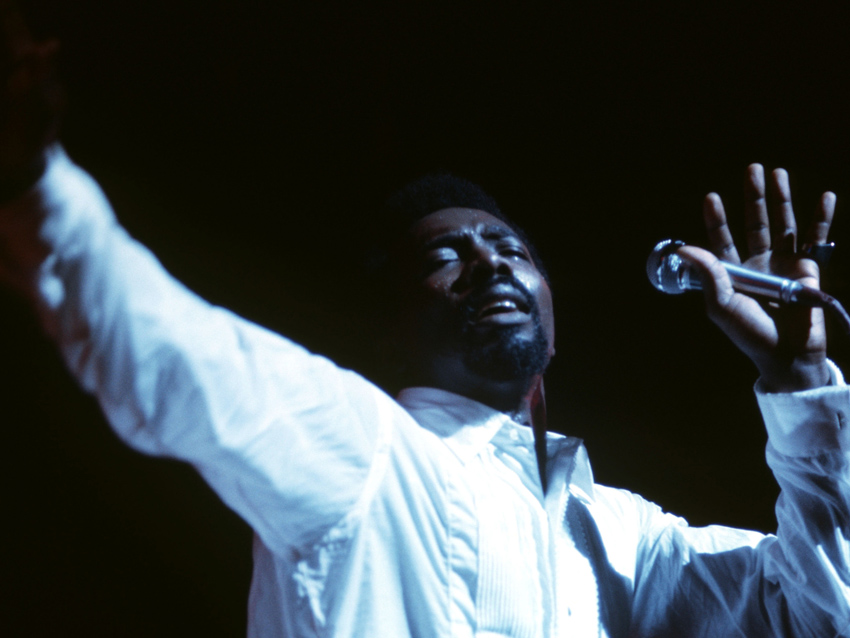
Wilson Pickett - Hey Jude (1969)
A controversial selection, certainly, but Pickett's rendition of Paul McCartney's message of support to Julian Lennon during his parents' divorce feels just as heartfelt when set in a different context. And when Pickett lets the handbrake off during the coda, you sense that nothing on Earth would be capable of stopping him.
Listen out, too, for Duane Allman's guitar playing, which no lesser authority than Eric Clapton believes to be among the finest on any R&B record.

Sinead O'Connor - Nothing Compares 2 U (1990)
Written by Prince at a time when he was knocking out so much great material that he could afford to pass on classic songs to his side projects, Nothing Compares 2 U first surfaced in 1985 on an album by The Family.
However, were it not for O'Connor's version in 1990, most of us would never have heard it. Seemingly keen to remind audiences exactly whose song it is, it's since become a staple of Prince's live sets.
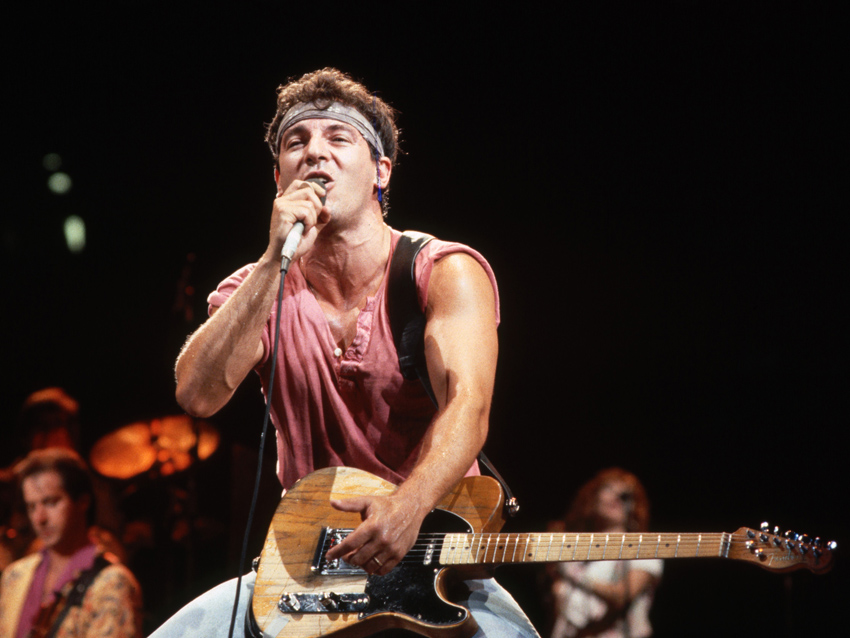
Bruce Springsteen & The E Street Band - Jersey Girl (1984)
Tom Waits wrote Jersey Girl as a love letter for his wife-to-be, Kathleen Brennan, a onetime Garden State resident. Fittingly, it’s one of his most warmhearted songs, built around a Brill Building-type melody and a lush musical arrangement, and distinguished by Waits’ charbroiled yet uncharacteristically sweet 'sha-la-las'.
When Bruce Springsteen introduced the song during the opening of the Meadowlands Arena in East Rutherford, New Jersey, in 1981, he remained mostly faithful to Waits' original (although the E Street Band, a mini orchestra, added a vaguely Spector-ish flourish), but he changed a few lines around ("whores on Eighth Avenue" became "the girls out on the avenue") and added a final verse of his own.
What’s striking about his interpretation, recorded on the final night of a six-night stand, is how Springsteen finds pockets of sensuality, intimacy and even humour, talking about taking "that little brat of yours and drop[ping] her off at your mom's".
Bootlegs of Springsteen’s recording made the rounds and were played on radio stations until finally, in 1984, it was released as the B-side of Cover Me. By then, it had already become New Jersey’s No. 2 unofficial anthem, right behind Born To Run
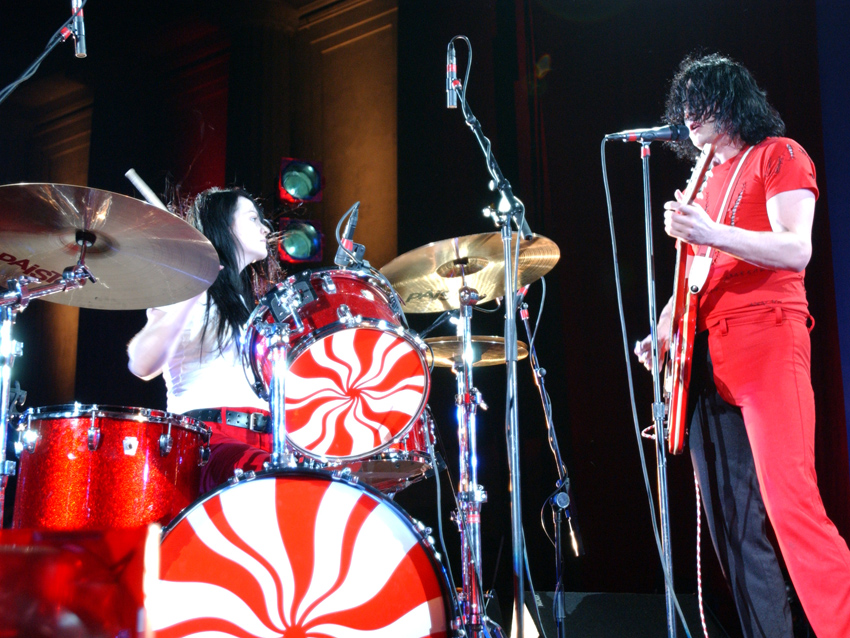
White Stripes - Jolene (2000)
Let’s not kid ourselves here: Dolly Parton’s version of Jolene is bloody great. It’s just a brilliant song - it even sounds amazing slowed down.
So how do you improve on Dolly’s impossibly catchy piece of country-pop? Obviously, the answer is to give it Jack White, whose intensity fires the White Stripes’ spectral cover into the stratosphere.
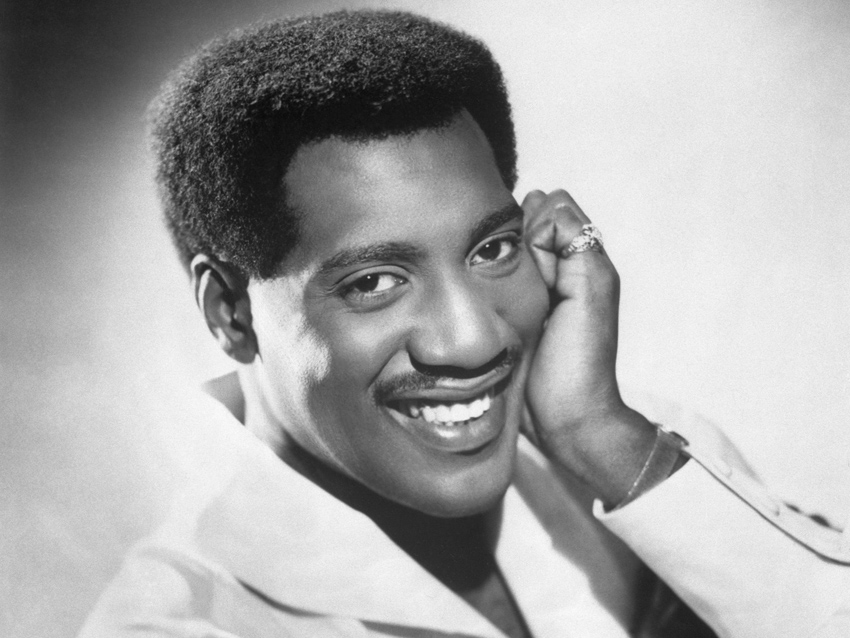
Otis Redding - Try A Little Tenderness (1966)
Try A Little Tenderness started out life as an utterly restrained British dance band number that was originally recorded by the Ray Noble Orchestra in the 1930s.
Bing Crosby added it to his repertoire soon after, but it wasn’t until some 30 years later that Redding really brought the song to life. Compared to the delicate shuffle of its original form, Redding’s rendition, arranged by producer Isaac Hayes, adds a near infinite amount of soul and tension.
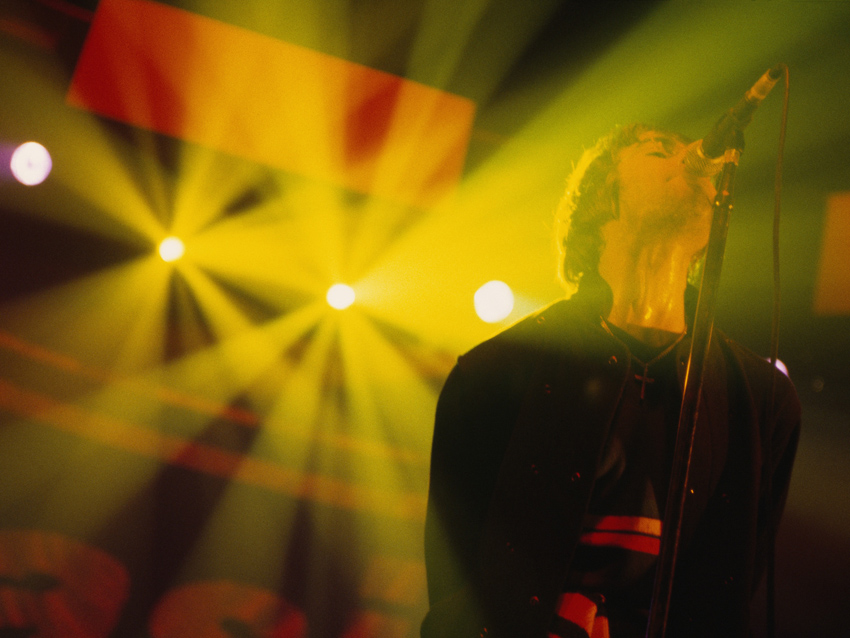
Oasis - Cum on Feel The Noize (1996)
The north west salutes the midlands in this colossal cover of Slade’s ’73 stomper. A prime example of the early Gallagher guitar wall of sound, this b-side to Don’t Look Back In Anger sounds like it could demolish buildings.
Belted out at the top of Liam’s lungs, this is Oasis at their unstoppable early best.

Joe Cocker - With A Little Help From My Friends (1968)
It takes a bold artist to cover a song and change the time signature, chords and structure - particularly if that song happens to have been written and recorded by the biggest band in the history of the world.
That's exactly what Cocker and his band did in 1968, though, adding a building organ intro and a vocal performance that makes Ringo's sound tame in comparison. His version tore up Woodstock, added pathos to The Wonder Years and has arguably become the definitive recording.
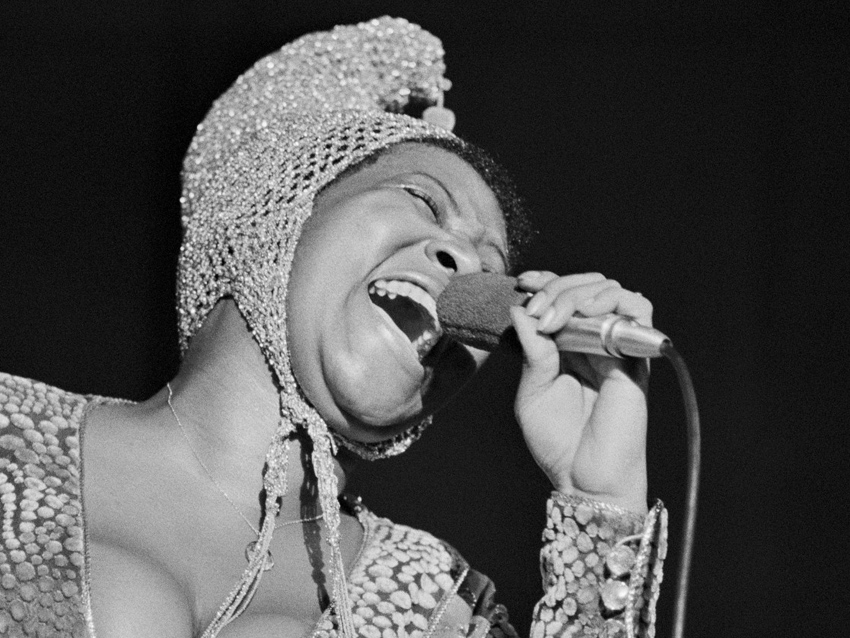
Aretha Franklin - Respect (1967)
Ever heard of Speedo Sims? Us neither, but that's who Otis Redding originally penned this soon-to-be soul classic for. Unhappy with Sims' version, Redding then went ahead and recorded the song himself, and under normal circumstances, his take on it would have been pretty much untouchable.
Aretha Franklin, however, has a voice that's anything but normal. Not only did she make the song her own, but she also turned it into a feminist anthem.
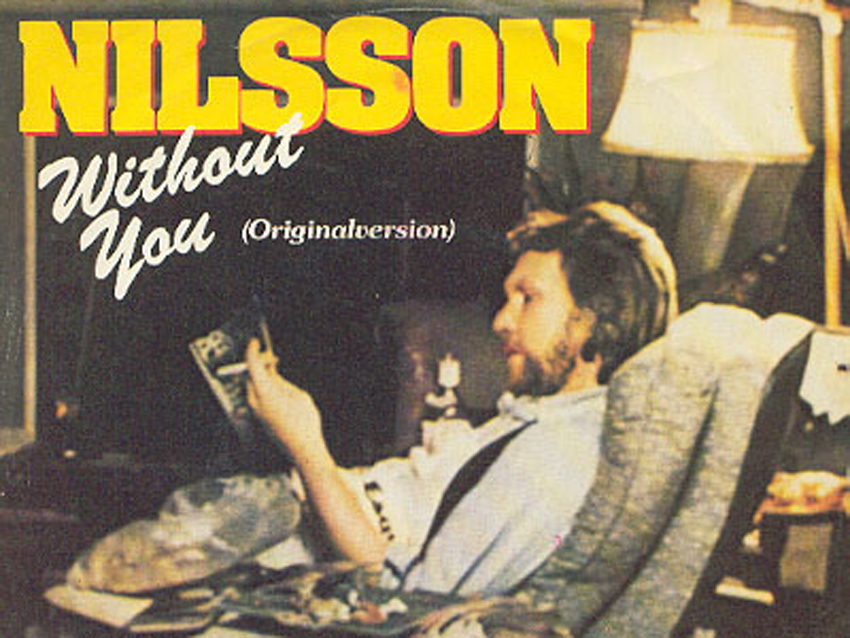
Harry Nilsson - Without You (1971)
As recorded by Badfinger on their 1970 album, No Dice, Without You was a convincing tale of lost love delivered as a melancholic, fairly straightforward pop-rock ballad. A year later, singer Harry Nilsson and producer Richard Perry re-imagined the song as an unabashed epic, bursting with Paul Buckmaster’s heart-thumping strings and horns, and driven home with unhinged desperation by Nilsson’s operatic, Herculean vocals.
Nilsson’s version of Without You scored with record buyers (the track spent four weeks at No 1 in the US and five weeks at the top spot in the UK), and the singer won 1973’s Best Male Pop Vocal Grammy for his performance. When Mariah Carey covered Without You in 1994, it was the Harry Nilsson version she emulated.
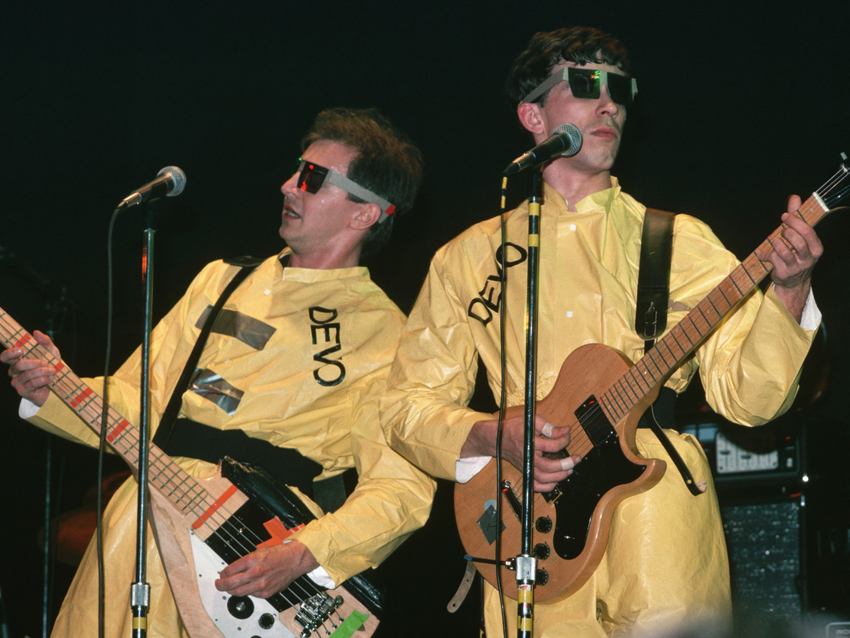
Devo - (I Can't Get No) Satisfaction (1977)
Whilst we’re by no means suggesting that the Stones’ original take on Satisfaction isn’t great, Devo’s 1977 single version has to be one of the most inspired reworkings of a song in the history of rock.
The band trade the youthful swagger of the original for a wonderful sort of mechanised funk that's built around an infectious drum groove and rough-edged guitars. In Devo’s hands, Jagger’s lyrics of frustration and alienation become utterly distanced from their roots. The band repurpose the song for a new age and turn the song’s undertone of intergenerational tension back on ‘60s rockers themselves.
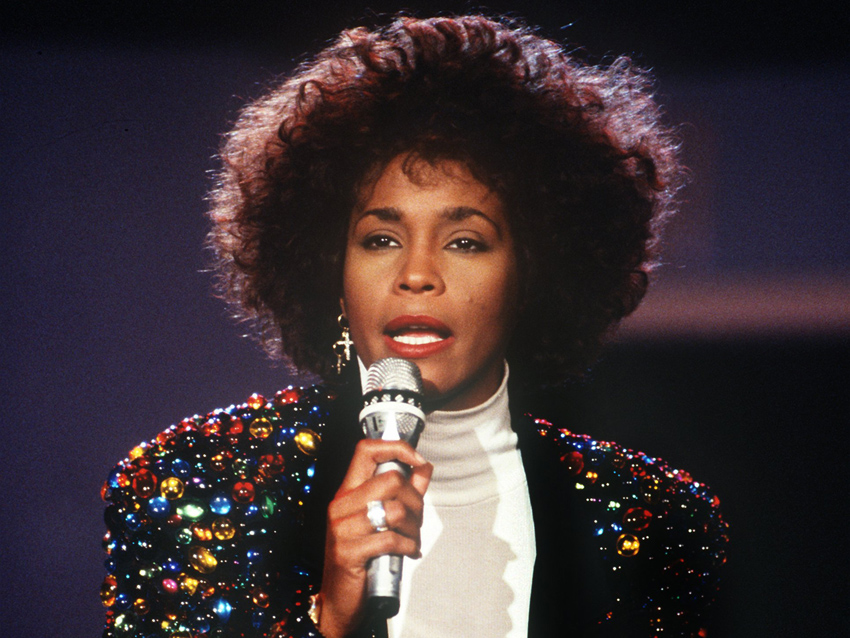
Whitney Houston - I Will Always Love You (1992)
Dolly Parton’s I Will Always Love You has led an improbable life, starting out in 1974 as the singer’s sweet and delicate country-laced farewell to her one-time partner Porter Wagoner, and re-appearing a year later as Linda Ronstadt’s darker, more mournful (and even more countrified) cover.
And then, in 1992, Whitney Houston, with some behind-the-scenes guidance from her Bodyguard co-star Kevin Costner, transformed the song into a pop-gospel anthem and made it her own. Her quivering and dramatic a cappella intro was a bravura star turn (the label hated it and wanted it cut; Houston and Costner fought for it and won), but so was the rest of her performance - a brilliantly sustained, emotive declaration of eternal devotion, one that swooned, sighed, cried and growled.

Arctic Monkeys - Baby I'm Yours (2006)
The Arctic’s smooth as silk version of this 1965 Barbara Lewis single, hidden away as the b-side on 2006 single Leave Before The Lights Go One, showcases the soft gooey heart lurking behind all that Sheffield steel.
A beautiful Alex Turner vocal, excellent backing harmonies, and some bloke called Oisin Leech from lost Liverpool indie types The 747s getting involved only adds to the charm.
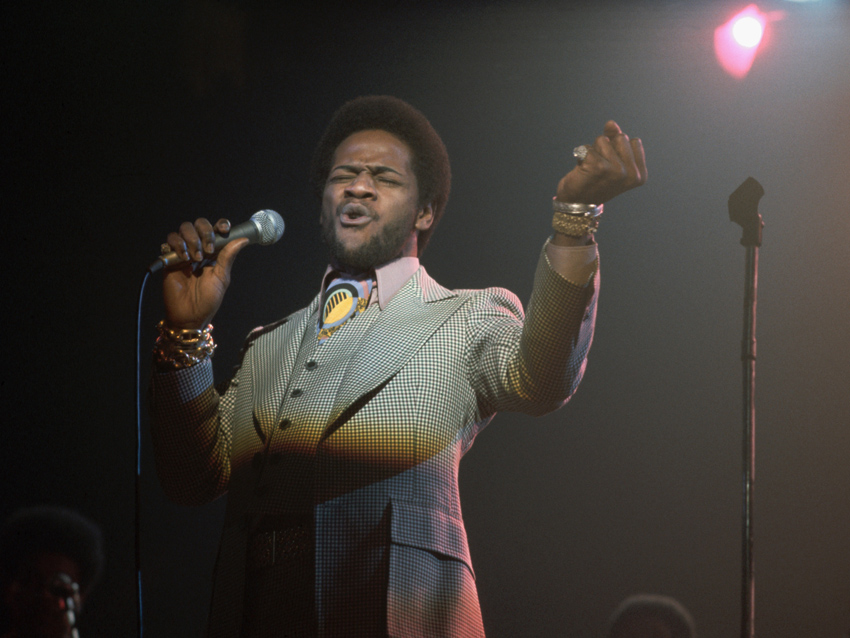
Al Green - How Can You Mend a Broken Heart (1972)
The Bee Gees always seemed to enjoy writing songs for other artists, but in 1972, Al Green chose to cover a ballad that that trio had originally recorded more than a decade previously.
The Reverend's version sounds altogether more pained and soulful than the original, though strangely, if you happen to be nursing a broken heart when you listen to it, it's also more comforting. Because let's face it: a voice like Al's can heal pretty much anything.
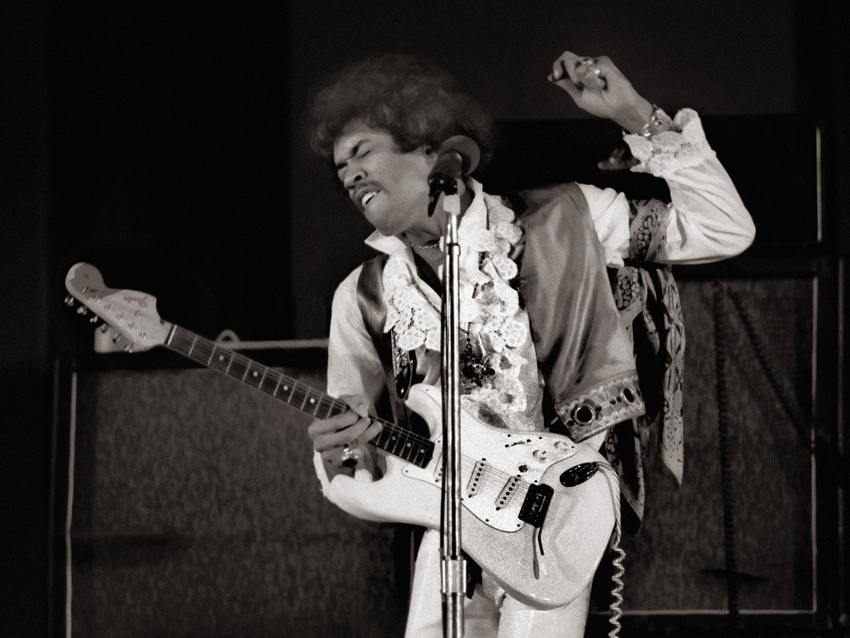
The Jimi Hendrix Experience - All Along The Watchtower (1968)
Bob Dylan’s recording of All Along The Watchtower, released on his 1967 album John Wesley Harding, was a breezy, whirling and gently beguiling number that leaned heavily on the sound of the troubadour’s pre-electric days.
A year later, Jimi Hendrix turned the song on its head, stretched it like a rubber band and shot it outside our atmosphere. His reading of Watchtower, issued on the last studio recording by the Jimi Hendrix Experience, Electric Ladyland, was the product of multiple recording sessions, during which the frustrated guitarist chased a ghost, cutting endless overdubs, scrapping them and starting all over again. (The final version features Dave Mason on acoustic guitar and Hendrix himself on bass.)
A masterpiece of sounds, moods and cross-cutting rhythms that seem to exist in their own spatial dimension, it features one of Hendrix’s greatest solos, a four-part tour-de-force of reckless spirit and mad, untethered creativity.
Said Dylan in the booklet to his Biograph album, "I liked Jimi Hendrix's record of this and ever since he died I've been doing it that way... Strange how when I sing it, I always feel it's a tribute to him in some kind of way."

Creedence Clearwater Revival - I Heard It Through The Grapevine (1970)
Sometimes even Berry Gordy could be wrong. The famed music mogul rejected Smokey Robinson & The Miracles’ peppy interpretation of I Heard It Through The Grapevine and shelved (for a time) Marvin Gaye’s anguished and mysterious take on the song, instead choosing to release Gladys Knight & The Pips’ by-the-numbers funk-soul version as a single in September of 1967.
As great as Gaye’s performance is, Creedence Clearwater Revival turned in the ultimate reading on their 1970 album, Cosmo’s Factory, stretching the song to an 11-minute epic of swampy, voodoo-blues guitar soloing that captivates the listener at every rugged twist and turn. But it is John Fogerty’s immense, tortured vocal delivery that truly captures the narrative of betrayal, that of a scorned lover pained and shamed and destined to a lifetime of tears.
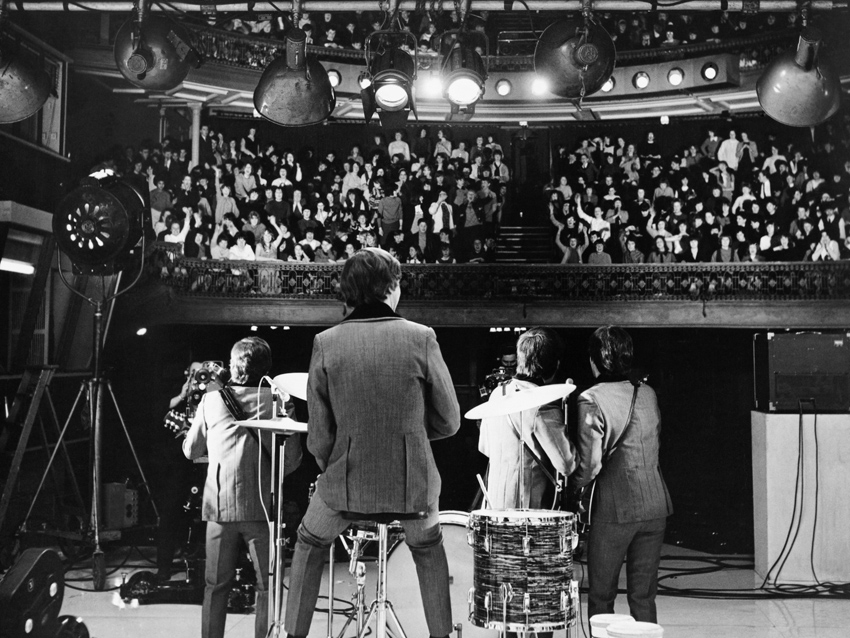
The Beatles - Twist And Shout (1963)
Even though we’ve all heard it a million times, there’s still something special about The Beatles ripping through The Isley Brothers’ Twist And Shout.
The recorded version is a masterclass in throat-shredding rock and roll, and it was even better when played live. Mach schau indeed.
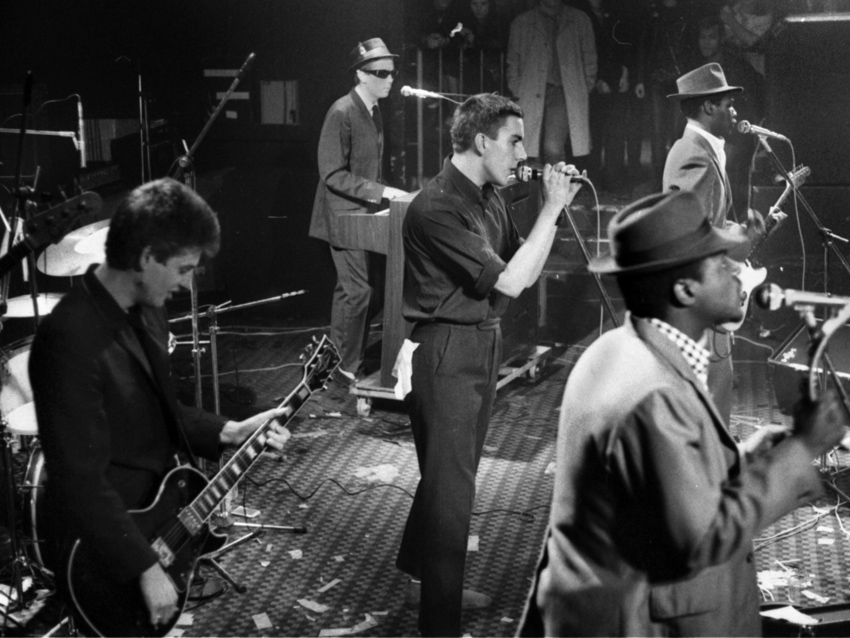
The Specials - A Message To You, Rudy (1979)
The calling card of Coventry ska saviours The Specials, A Message To You, Rudy is one of those songs that has become so associated with the cover that it’s difficult to process the fact that the Specials didn’t write it.
But they didn’t - the honours go to Dandy Livingstone, who penned it in ’67, although his version is nowhere near as good. Sorry Dandy.
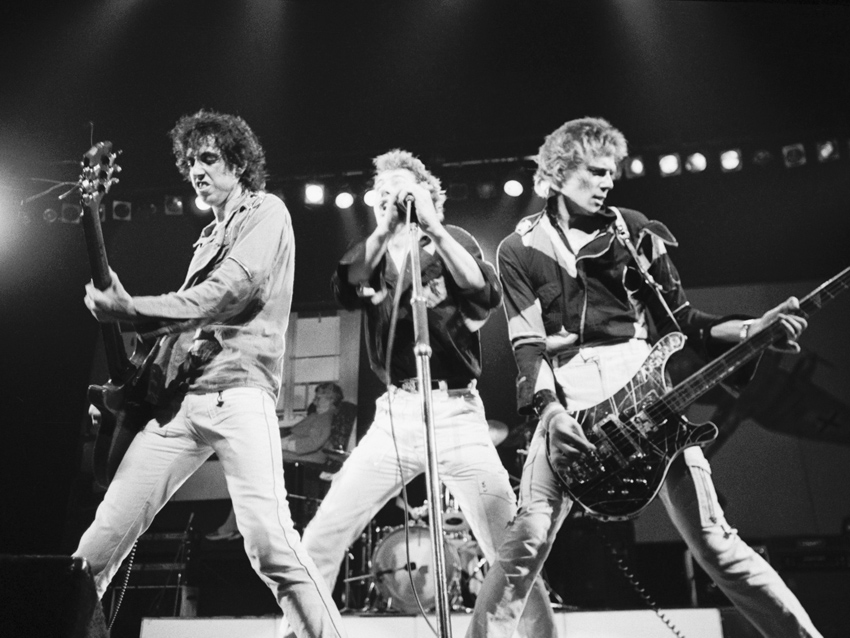
The Clash - Police And Thieves (1977)
When most punk bands were painting themselves into an ever more restrictive three-chord corner, The Clash went the other way and demonstrated their willingness to look outward by including this Junior Murvin tune on their debut album.
Mick Jones shows off his flair for arranging, and Joe Strummer’s gruff vocals take the song to a visceral place that Murvin’s falsetto original never got near.
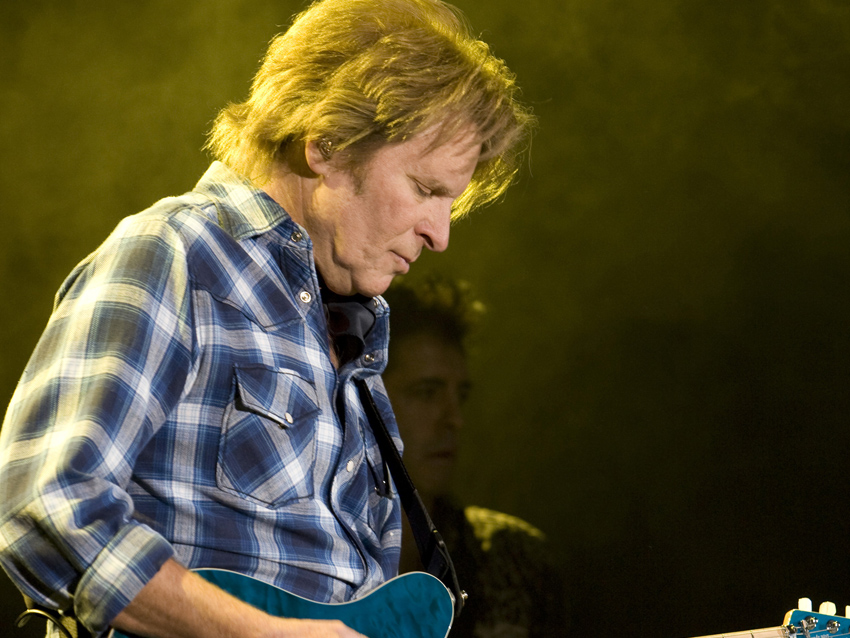
Creedence Clearwater Revival - I Put A Spell On You (1968)
How do you improve on Screamin’ Jay Hawkins? The answer is simple: Creedence.
Their arrangement is about as menacing as four blokes with comedy moustaches could have made it, all nagging guitars and fiery vocals. It’s also impossible to turn off, making it actually, properly magical.
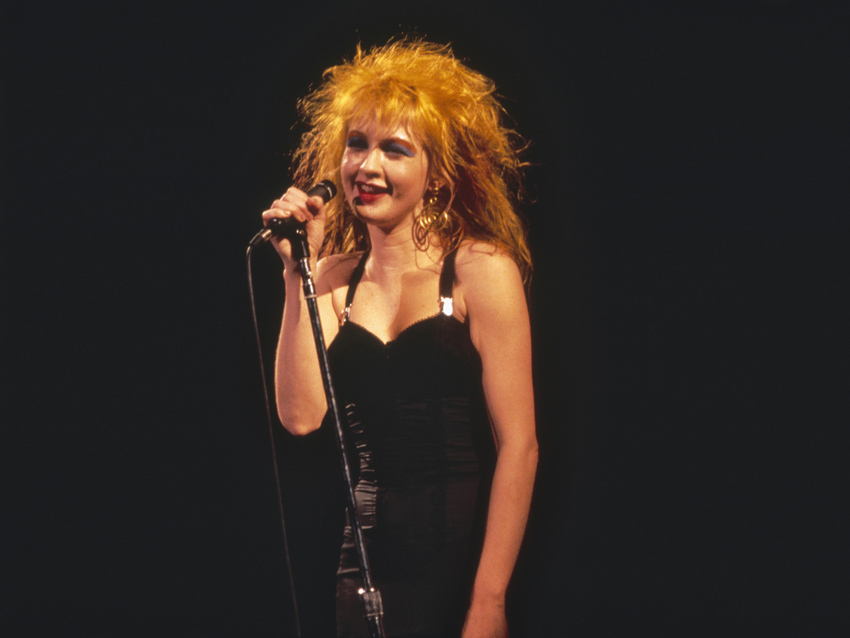
Cyndi Lauper - Girls Just Wanna Have Fun (1983)
Whether they’re willing to admit it or not, it’s a well-known fact that literally everyone likes Cyndi Lauper’s ‘80s synth-pop anthem Girls Just Wanna Have Fun. Even the most testosterone-packed, hard-as-nails, no-nonsense ‘ard men can’t help but succumb to its bouncy charm.
Lauper’s version is so good in fact, that basically nobody remembers that the track was originally released in the late-‘70s by Philadelphian rocker Robert Hazard.
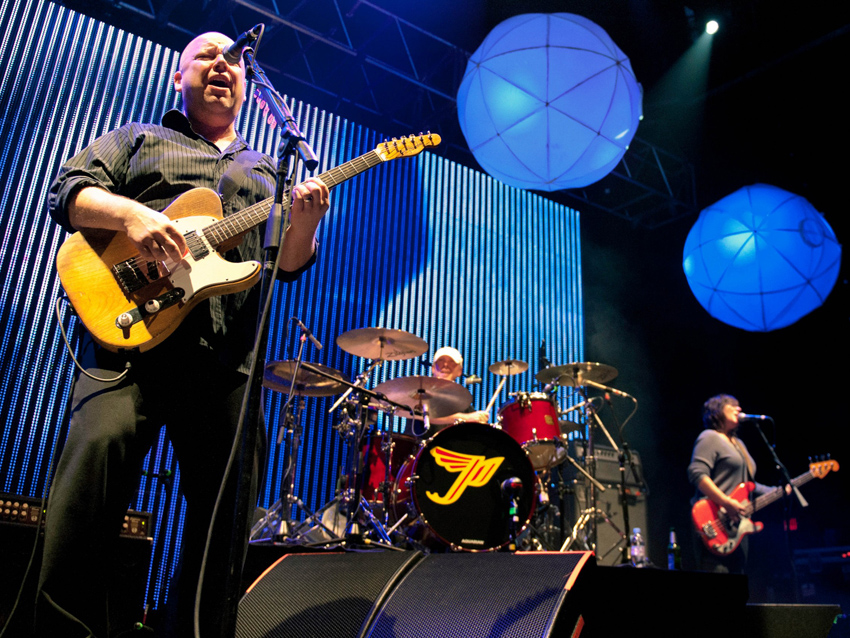
Pixies - Wild Honey Pie (1988)
Let’s be honest: Paul McCartney’s White Album solo cut Wild Honey Pie is, by no stretch of the imagination, one of The Beatles’ finer moments. In fact, with all due respect to the Fab Four, we’d go as far as to say that the minute-long, knockabout studio improvisation is downright rubbish.
In the hands of Black Francis and co, however, the track becomes a different beast entirely. An early live staple, and later released as part of their BBC sessions, Pixies’ version transforms McCartney’s mix of jarring string bending and plodding vocals into a full-pelt mass of garage punk fury.
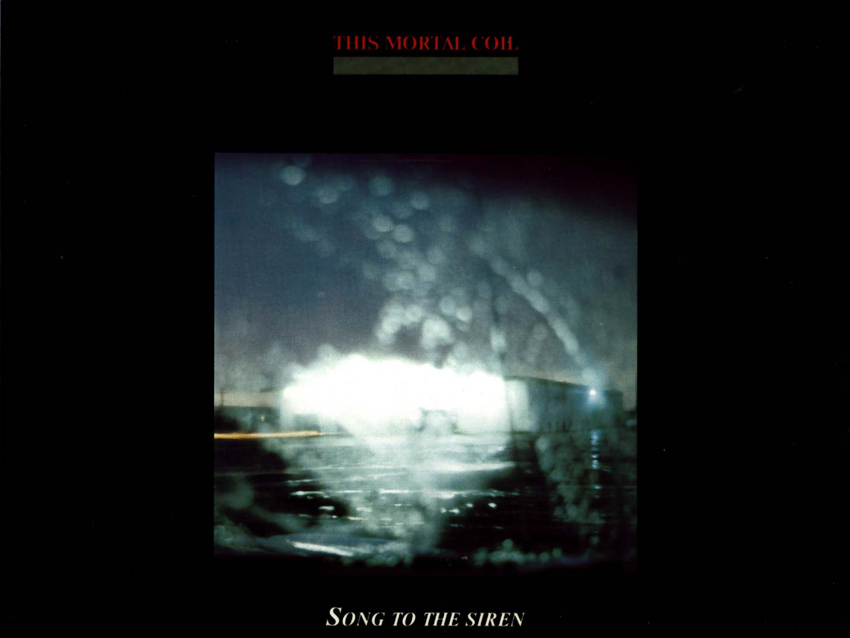
This Mortal Coil - Song To The Siren (1983)
4AD’s revolving door supergroup This Mortal Coil turned in countless gothic covers and ethereal reworkings in their eight-year existence, but this rendition of Tim Buckley’s classic is by far the finest of them.
The track sees Cocteau Twins vocalist Elizabeth Fraser manage the seemingly impossible by sounding even more regal and majestic than Buckley. Her voice is matched perfectly by the fractured, almost new age-sounding instrumental backing provided by bandmate Robin Guthrie.
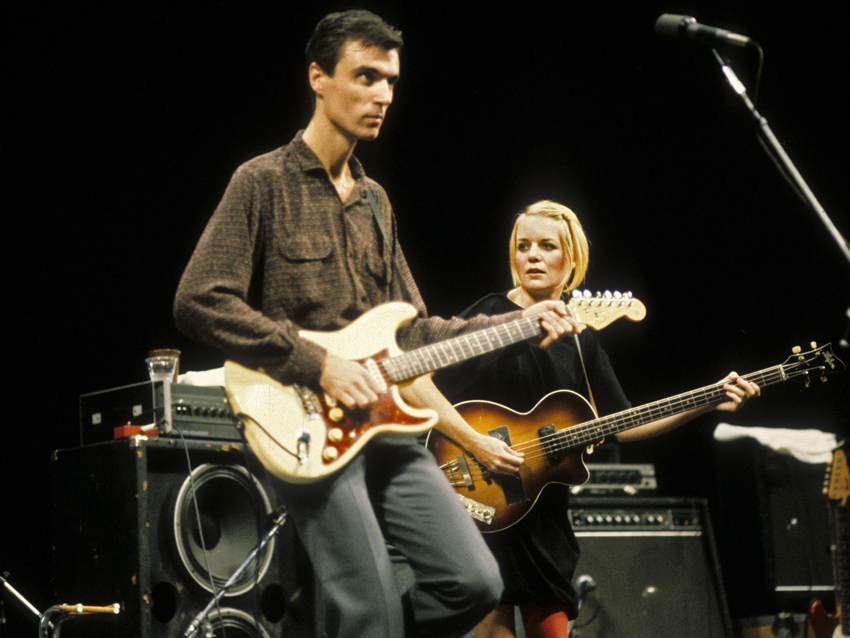
Talking Heads - Take Me To The River (1978)
Sensuality and spirituality might seem like unlikely leitmotifs for one song, but two years before he became a pastor in 1976, Al Green and his guitarist, Teenie Hodges, married both themes on a soul classic that grooved and rollicked righteously.
On their second album, More Songs About Buildings And Food, New York’s Talking Heads slowed down the tempo, found spaces and bumps in the sound, let the organ breathe deeply and sat the whole thing down in the front pew of a Memphis church for a true musical benediction.
David Byrne’s inspired vocal performance - at times he’s erupting in uncontrollable vocal ticks and growls, while at others he’s singing naturally and serenely, even gliding in a falsetto swoon - suggest a man wrestling with and ultimately saved by beatific, healing visions.
MusicRadar is the internet's most popular website for music-makers of all kinds, be they guitarists, drummers, keyboard players, DJs or producers.
GEAR: We help musicians find the best gear with top-ranking gear round-ups and high-quality, authoritative reviews by a wide team of highly experienced experts.
TIPS: We also provide tuition, from bite-sized tips to advanced work-outs and guidance from recognised musicians and stars.
STARS: We talk to artists and musicians about their creative processes, digging deep into the nuts and bolts of their gear and technique. We give fans an insight into the actual craft of music-making that no other music website can.
